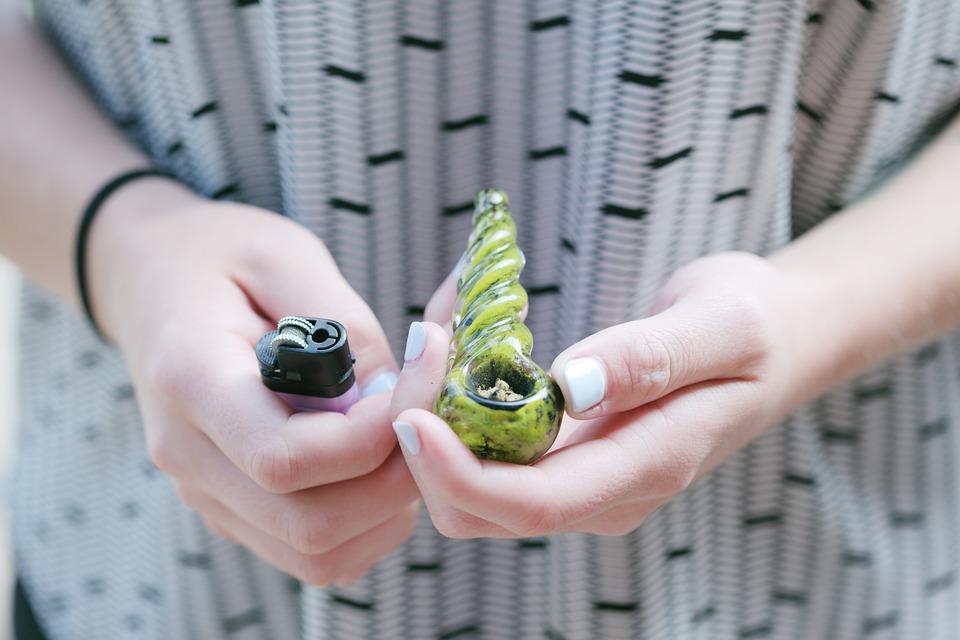New research explores some of the long-term impacts of marijuana use in families. The team used data collected throughout 16 years representing 380 families to explore relationships between parent self-reported marijuana use and children’s drug habits, attitudes surrounding substance use, internalizing and externalizing behavior patterns, attention problems, and grades in school.
The researchers, Marina Epstein, Jennifer A. Bailey, and Madeline Furlong of the University of Washington, and Christine Steeger and Karl Hill of the University of Colorado, Boulder, published their findings in the American Psychological Association’s Psychology of Addictive Behaviors. The study revealed that the children of parents who reported marijuana use during their teenage years were significantly more likely to report substance use than the children of those who did not.
The results also indicated that children whose parents reported a history of marijuana use later on in adulthood had children slightly more likely to have lower grades and attentional difficulties, but who were no more likely to report substance use than their peers. Current versus past parent marijuana use did not significantly mediate results.
“The legalization of marijuana use in 10 states and the District of Columbia is reflected in public perception that adult use is not harmful and does not need to be curtailed. Indeed, unlike the documented negative consequences of marijuana use among adolescents, the consequences of infrequent adult marijuana use to adults are relatively few. However, many adults are parents, and recent studies showed that marijuana use among parents has also increased.”

Marijuana, now legal for recreational use in 10 states and the District of Columbia, has increased in popularity in recent years. Despite its reach, barriers to rigorous research regarding its safety and effects have been well documented. In recent studies examining marijuana and its consequences, some researchers have identified potential mental health risks associated with marijuana use, while others have suggested there are few discernable risks.
Further, there have been powerful critiques of what little research exists, such as Madras’ piece highlighting the methodological flaws of a 2015 longitudinal study suggesting no connection between teen pot use and later adult mental health issues. The topic of marijuana use can be sensitive, political, and polarizing, and many related studies are met with scrutiny, whatever implications they purport.
Epstein and colleagues report that “[p]arent marijuana use is particularly concerning because studies show that parent current substance use may be linked to adverse effects on child well-being, including a higher likelihood of child substance use.” They suggest that theirs is the first study to examine the extent to which parent marijuana use before and during parenthood impacts children’s characteristics and behavior patterns across a range of relevant domains.
The team explored links between nuances in parents’ drug use histories and adolescent outcomes through the lens of the social development model (SDM), which suggests that intricacies of socialization inform behavioral trajectories throughout the lifespan. This perspective suggests that family, school, and peer groups are the most influential forces in childhood socialization processes.
Past research using some of the same data applied in this examination grouped parental marijuana use into four categories; nonuser, chronic, adolescent-limited, and late-onset. With family marijuana use as the focus of the current study, authors hypothesized that “children of parents in the chronic group will have the worst outcomes compared to other classes. [they] also expect[ed] that parents’ class membership [would] be most associated with child marijuana use and norms, though associations with mental and behavioral health [were] also hypothesized.”
The project examined a diverse sample of families involved in two studies, the Seattle Social Development Project (SSDP) and The Intergenerational Study (TIP). Participating family units comprised a parent, their oldest biological child, and interviews with additional caregivers in some instances.
Data collection occurred across ten waves between 2002 and 2018. Parent habits were recorded according to self-report, children’s substance use patterns and attitudes were collected through self-report, and child internalizing, externalizing, attention problems, and grades were gathered through parent-report. Multilevel modeling was conducted to assess shifts in relationships and outcomes over time.
Similar to what had been hypothesized, “[c]hildren of parents in the chronic and adolescent-limited use groups had greater odds of marijuana and alcohol use compared to children of parents in the nonuser group. Children of late-onset users did not report more substance use risk but did report lower grades compared to nonusers. These findings held for adolescent-limited and late-onset groups after parent concurrent marijuana use was included in the models, suggesting that although current parent use is an important risk factor for child health, parents’ history of marijuana use poses an additional risk, particularly for marijuana use and norms.”
Authors posit that their findings highlight the intergenerational impact of marijuana use, indicating that parental behavior patterns can be linked to children’s’ attitudes and behaviors alike associated with marijuana and other drugs. This study provides evidence for relationships between socialization, development in understandings of normative behavior in childhood, and later decision-making patterns. However, more research is needed to elucidate the gravity of implications associated with these intergenerational effects. Research regarding critical longitudinal outcomes of marijuana use is yet in its infancy.
****
Epstein, M., Bailey, J. A., Furlong, M., Steeger, C. M., & Hill, K. G. (2019). An intergenerational investigation of the associations between parental marijuana use trajectories and child functioning. Psychology of Addictive Behaviors. DOI: 10.1037/adb0000510 (Link)















“Parent Marijuana Use Associated With Substance Use in Children.” Is this really “news” to the “mental health” workers? Or actually just a statement all people should already know, based upon common sense. This type of research is a complete waste of taxpayer dollars. Oh, that’s right, our doctors today don’t even know opioids are mind altering, addictive drugs either.
Report comment
‘Marijuana’ is a slur leftover from the days of reefer madness. The plant is cannabis. Furthermore, there can be zero conclusions drawn about cannabis as a plant when different forms have vastly different chemical makeups and hence vastly different effects on the body. I’m surprised and disappointed MIA would publish such a sloppy and utterly unscientific story.
Report comment
What about the ‘inter-generational impact’ of antidepressants and other PSYCHOtropic drugs? Both my grandmother and mother were given high doses of antidepressants and benzodiazepines after being sold the lie of having a ‘chemical imbalance’. These drugs caused memory loss, severe fatigue, brain fog, obesity, high blood pressure, type 2 diabetes, and in my mother’s case severely impacted her ability to parent me and my siblings.
Because my family ‘normalized’ the use of these drugs, I was also given antidepressants/benzos/and neuroleptics when I was going through a situational depression in my early 20s. I guess I am a perfect example of a child whose ‘parents history of psychotropic use, posed an additional risk’ for my mental and physical health.
This article is just another example of Big Pharma demonizing alternative medicine.
Report comment
I can’t believe MIA wasted bandwidth on this B.S.!
I can replace the entire Pharmaceutical Industry with Cannabis.
In fact, I wish I were “court ordered” to consume it.
“knock knock, time to take your medication” (4 times per day)
P.O. Standing there with a bag of Weed insisting I consume “or else”…
Get a grip!
Report comment
Monkey see- Monkey do- it’s as simple as that. But if anythings to blame, for what that monkeys doing, “today”- its got to have something, or way more to do with a third of society, being on Psyche drugs- 30%– whereas and compared to Marijuana, is 4%/7%/ to 10% tops, speaks for itself really.
Report comment